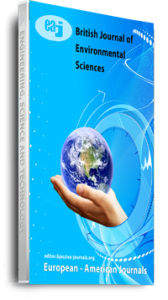This research examines the temporal relationship between renewable energy production and economic growth in Albania during 2019-2023, a period marked by the COVID-19 pandemic and European energy crisis. Using quarterly data from authoritative sources, the study employs correlation analysis, regression modeling, Granger causality testing, and impulse response function analysis. Results reveal a strong positive correlation (r = 0.72) between renewable energy production and GDP per capita, with renewable energy explaining approximately 51% of economic output variation. Granger causality testing indicates a bidirectional relationship between variables. Impulse response analysis shows that positive shocks to renewable energy production generate significant positive GDP responses peaking after three quarters, while economic growth stimulates renewable energy production after two quarters. The findings support the “feedback hypothesis” in energy-growth literature, demonstrating that investments in renewable energy infrastructure stimulate economic growth, while simultaneously, economic expansion facilitates further renewable energy adoption through increased investment capacity. These insights have significant implications for Albania’s energy policy and economic development strategies, particularly regarding energy transition, sustainable development objectives, and European integration requirements.
Keywords: Albania, Renewable Energy, economic growth, time-series analysis energy transition

